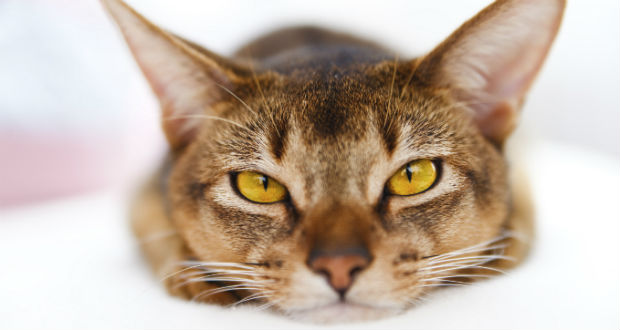5 Tips to Make Eating a Difficult Cat

Indeed, it must be quite frustrating for but, there is always ways to improve and still time to make your kitten that willingly eats what is given. Of course, like us, they have their preferences and refuse certain foods they do not like (do you remember spinach when you were little?). Here are some pointers to keep in mind for our readers if, your kitten or cat does not want to eat anything!
1. The Basic of Nutrition
First, it is important to remember the difference between a complete and a complementary food:
A complete food contains a variety of ingredients and additives that can be synthetic or natural, depending on the. These recipes contain the nutrients your pet needs to be fit. Croquettes are all complete foods, making them the food of choice for most masters. They also have the advantage of keeping well, and of forcing your pet to chew hard foods. This has a very important “toothbrush” effect for keeping teeth healthy.
A supplementary food is a delicacy that is complementary, as its name suggests. It does not contain all the necessary nutrients for your pet. Its taste and texture appeal to most of our cats. This is where it gets bored, because the majority of packets and boxes of pies are complementary foods. So, if your cat eats only this, pay attention to deficiencies and health problems…
2. Medical Reasons
This is easily detected by your veterinarian who can, if necessary, make a diagnosis and provide you with the appropriate treatment. We invite you to make an appointment as soon as possible to check this point. Once the medical reasons are eliminated, we must look at what may be happening at the behavioral level.
3. How Does The Kitten Build His Taste?
We tend to say that the baby cat can open up to new flavors until the age of 6 months. It should be noted however that the first 2-3 months are particularly important and that at 3 months, there is already a lot of acquired. Ideally, the family where the cat grows (whether in private homes or breeders) must have a lot of food tested on the baby. It should also be known that her tastes are influenced by the way the mother was fed during breastfeeding: for example, if she ate chicken nuggets, it is quite possible that the kitten will mostly enjoy the tastes of poultry.
4. Make a Food Palatable
For a cat to end up agreeing to eat a food, do not scold him or shout if he balks. This kind of punishment will only cause anxiety: the animal will be stressed and afraid every time he sees the food. In other words, he is unlikely to eat it one day!
On the contrary, we must make the food appetite, that is to say seductive for his taste buds.
5. If nothing helps…
If medical reasons are ruled out, you have tried different brands and tastes, Appetin, salmon oil or broth do not interest your cat, it is possible that a deeper behavioral reason is to be found. In this case, we advise you to call on an expert near you to try to identify where the problem comes from: does this date from early childhood? Is the stress coming from the move and the changes it has caused?
Good luck!
You can read more detials here: https://petcatsupply.com/

